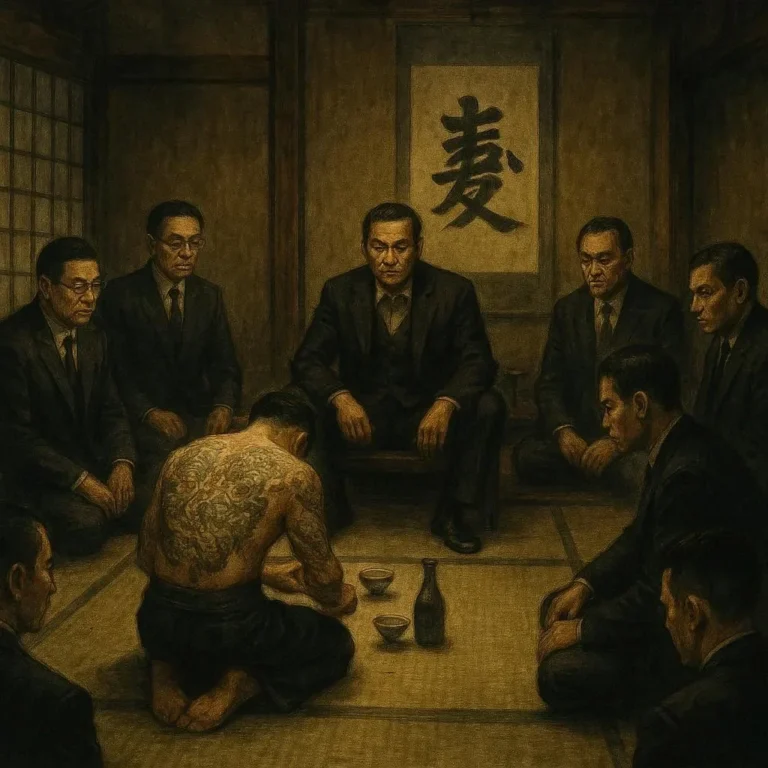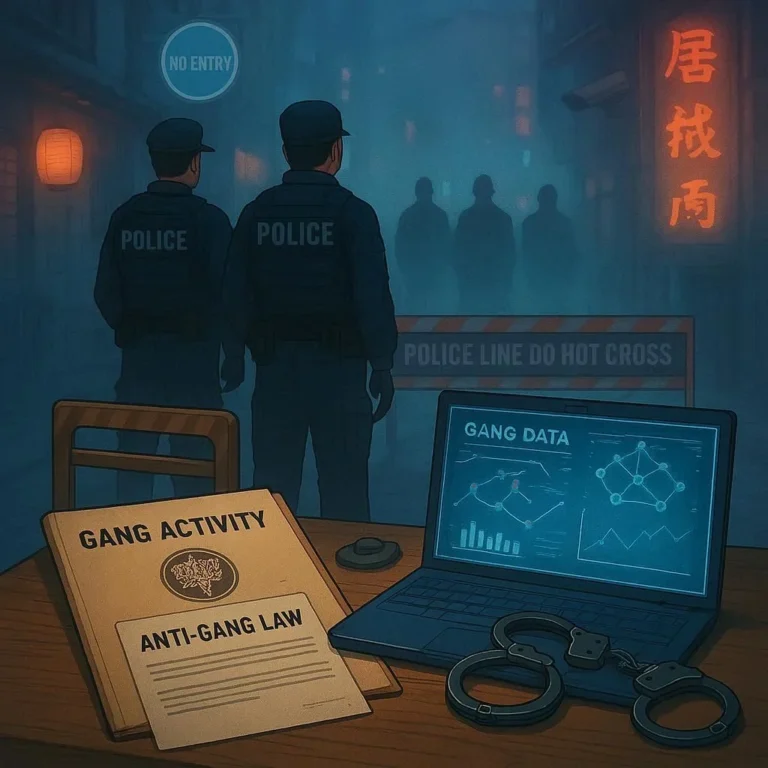503 views Disbanding and Rebuilding the Yakuza: Initiatives and Resistance
Can Japan Disband the Yakuza? The Complex Journey of Dismantling Organized Crime
The Yakuza, Japan’s infamous organized crime syndicates, have long been a thorn in the side of law enforcement and societal stability. With their deep-rooted history and cultural entanglements, dismantling the Yakuza seems like an insurmountable task. Yet, recent initiatives aimed at disbanding these groups and rebuilding their structures have sparked debate and resistance. This blog post delves into the complexities of these efforts, the challenges authorities face, and the cultural implications of such a significant shift.
Understanding the Yakuza: A Historical Context
Before diving into the modern initiatives, it’s essential to understand the origins and evolution of the Yakuza. Emerging in the 17th century, the Yakuza began as groups of samurai and gamblers who adhered to a strict code of honor known as “giri.” Over centuries, these groups evolved into powerful criminal organizations involved in extortion, drug trafficking, and illegal gambling.
The Yakuza’s structure is hierarchical, with members pledging loyalty to their respective clans. This rigid hierarchy has allowed the Yakuza to maintain control and evade law enforcement for centuries. Their influence extends beyond criminal activities, with ties to legitimate businesses and even politics.
Read more about the Yakuza’s history and structure on Wikipedia.
Recent Initiatives to Disband the Yakuza
In recent years, the Japanese government has intensified efforts to dismantle the Yakuza. These initiatives include stricter laws, increased police crackdowns, and social programs aimed at reintegrating former members into society.
The Anti-Boryokudan Law
One of the most significant steps taken by the government is the enforcement of the Anti-Boryokudan Law, which targets organized crime groups. This law aims to weaken the Yakuza’s financial foundation by criminalizing transactions with gang members and seizing their assets.
Police Crackdowns
Law enforcement agencies have also stepped up their efforts to disrupt Yakuza operations. Raids on Yakuza-owned properties, arrests of high-ranking members, and intelligence-gathering operations have become more frequent. These efforts have led to the dismantling of several smaller Yakuza factions.
Social Reintegration Programs
To address the root causes of Yakuza membership, the government has implemented social programs aimed at helping former members find legitimate employment and reintegrate into society. These programs include job training, counseling, and financial support.
Resistance from the Yakuza
Despite these efforts, the Yakuza have shown significant resistance to disbandment. Their ability to adapt and survive has been a major obstacle for authorities.
Financial Adaptation
The Yakuza have shifted their operations to less visible activities, such as cybercrime and online gambling, to evade detection. They have also invested in legitimate businesses, making it harder for authorities to distinguish between legal and illegal operations.
Recruitment Strategies
To maintain their numbers, the Yakuza have targeted vulnerable individuals, such as unemployed youth and marginalized communities. They offer a sense of belonging and financial stability, making it difficult for these individuals to resist recruitment.
Cultural Entrenchment
The Yakuza’s cultural influence remains a significant barrier to their disbandment. Their portrayal in media, such as films and books, has romanticized their image, making it harder for the public to fully support their dismantling.
Learn more about the Japanese government’s stance on organized crime.
The Challenges of Rebuilding
While disbanding the Yakuza is a crucial step, rebuilding the structures they once controlled is equally challenging. Authorities must address the void left by the Yakuza’s influence and ensure that new criminal organizations do not rise from the ashes.
Filling the Power Vacuum
The Yakuza have long provided a form of governance in certain communities, particularly in rural areas. Disbanding them without providing alternative governance structures could lead to chaos and an increase in petty crime.
Community trust
Rebuilding trust between law enforcement and the public is another significant challenge. In some areas, the Yakuza have historically provided protection services, making it difficult for communities to rely solely on the police.
Economic Impact
The Yakuza’s involvement in illegal activities has had a profound impact on the economy. Disbanding them could lead to economic instability, particularly in industries where they have significant influence, such as construction and entertainment.
The Role of Society in Rebuilding
The success of these initiatives depends heavily on the support of the general public. Society must play an active role in rejecting the Yakuza’s influence and embracing new structures.
Public Awareness Campaigns
Educating the public about the dangers of organized crime is crucial. Campaigns highlighting the negative impact of the Yakuza’s activities can help shift public perception and garner support for the government’s efforts.
Community Involvement
Local communities must take an active role in rebuilding their neighborhoods. This includes reporting suspicious activities, supporting victims of Yakuza exploitation, and participating in initiatives aimed at fostering a sense of community.
Corporate Responsibility
Businesses must also play a role by refusing to engage with Yakuza-affiliated organizations. This includes avoiding transactions with companies known to have ties to organized crime and supporting initiatives aimed at dismantling the Yakuza’s financial networks.
Case Studies: Success and Failure
Examining past attempts to dismantle organized crime groups can provide valuable insights into the effectiveness of current initiatives.
The Italian Mafia
The Italian government’s efforts to dismantle the Mafia offer both lessons and warnings. While significant progress has been made, the Mafia’s deep-rooted cultural influence remains a challenge. Japan can learn from Italy’s successes and avoid similar pitfalls.
The Irish Mob
The decline of the Irish Mob in the United States serves as an example of how targeted law enforcement and social programs can lead to the disbandment of organized crime groups. However, Japan’s unique cultural and historical context presents additional challenges.
Explore historical case studies of organized crime dismantlement efforts.
Conclusion: The Long Road Ahead
Disbanding and rebuilding the Yakuza is a complex and ongoing process. While significant progress has been made, resistance from the Yakuza and the challenges of rebuilding their former structures present significant obstacles. Continued efforts from the government, law enforcement, and society as a whole are essential to achieving lasting success.
Call to Action
The fight against organized crime requires the support of every individual. By staying informed, raising awareness, and actively participating in community initiatives, we can all play a role in building a safer, more just society. Share this article with your network to spread the word and encourage others to join the conversation.
If you have insights or experiences related to this topic, we’d love to hear from you in the comments below. Let’s work together to shed light on this critical issue and explore ways to create positive change.
This blog post has explored the complexities of disbanding the Yakuza and the initiatives aimed at rebuilding their structures. By understanding the challenges and resistance, we can better support the efforts to dismantle organized crime and create a brighter future for generations to come.






